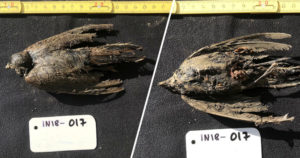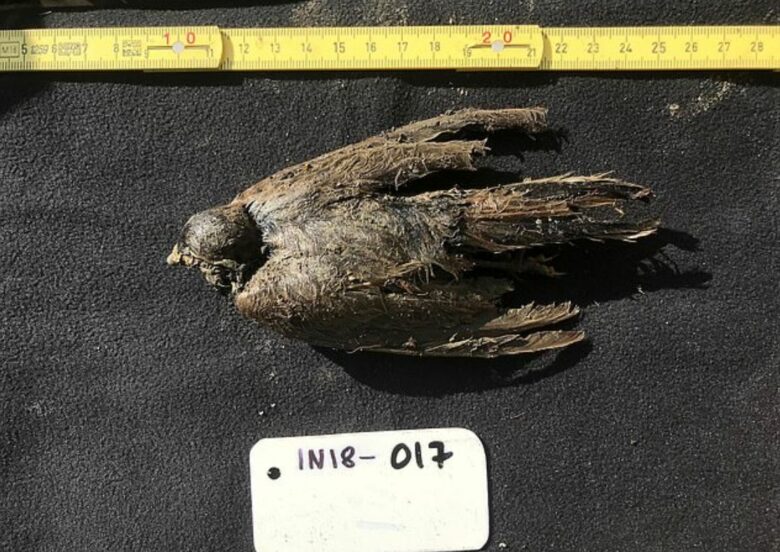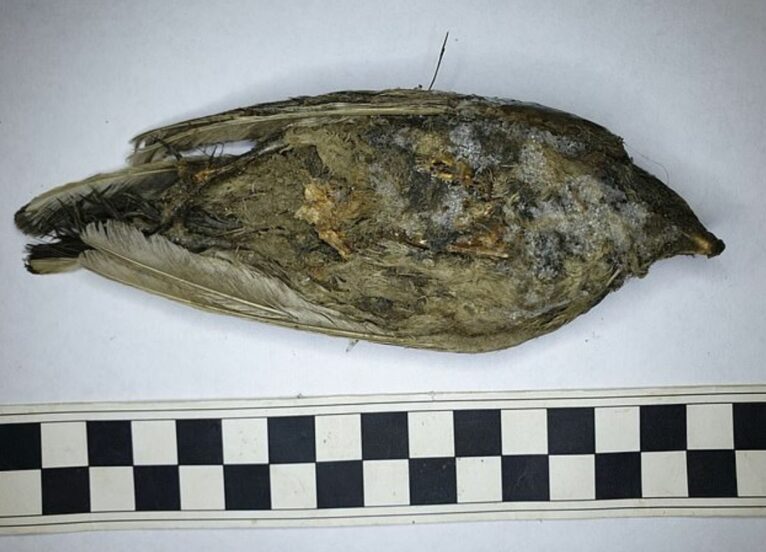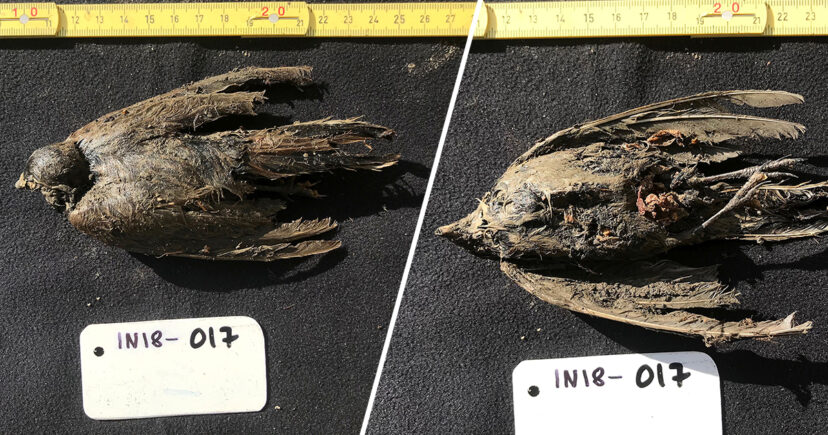
46,000-Year-Old Frozen Bird Found Preserved So Well That Scientists Thought It Died Yesterday
A 46,000-year-old bird has been found so well preserved that researchers initially thought that the bird died yesterday.
The bird is believed to be an ancestor of the modern horned lark.

The feathered creature was discovered in permafrost in a mine tunnel near the village of Belaya Gora in the north-east of Siberia.
Horned Larks, the bird that was found, are known for taking to open habitats.
Researchers said the bird, who is now being called the “icebird” was a female.
The icebird is the first record of frozen birds from this time to be found in the area.
It is believed that the bird died a non-violent death.
The non-violent death of the bird allowed it to be perfectly frozen and prevented it from decomposer over the millennia.
Love Dalen, a paleontologist, and his colleagues at the Swedish Museum of Natural History were tasked to study the carcass of the bird.

According to reports, the carcass was found 7 meters underground by local fossil ivory hunters that were tunneling into the permafrost.
Professor Love Dalen and his Colleague Nicolas Dussex of the Centre for Paleogenetics in Stockholm carefully brought the remains of the bird to their laboratory and analyzed.
The team used radiocarbon dating to know how old the bird was.
After some tests, they found out that the bird was flying over Siberia around 46,000 years ago.
Originally, they thought that the bird was a lark or a thrush, but it turned out to be the ancestor of the modern horned lark.

Professor Dalen said, “The study deals with radiocarbon dating and a genomic analysis on what is likely the first-ever discovered frozen bird from the last Ice Age. No autopsy has been done but I think we can conclude its death likely wasn’t violent and it must have been frozen relatively quickly because otherwise it falls apart.”
The professor said, “I’m pretty sure we also sexed it and it’s a female which is also a little fun fact but we’re not entirely sure what we’re going to do with that information. We haven’t discussed giving it a formal name but within our circle we call it ‘Icebird’ because it was found frozen.”
This is such an amazing find!